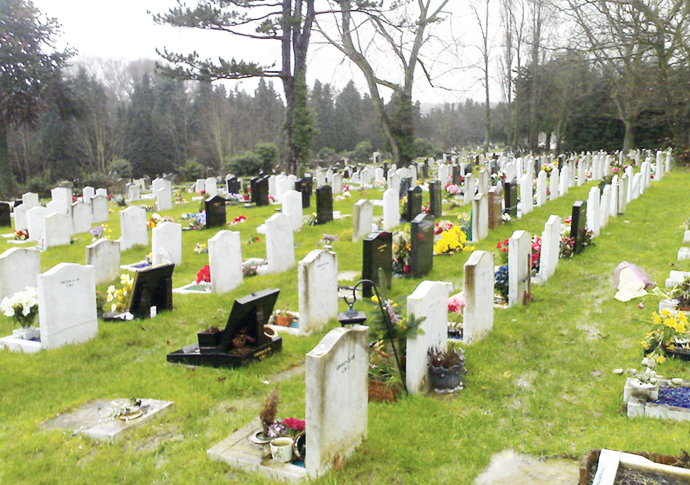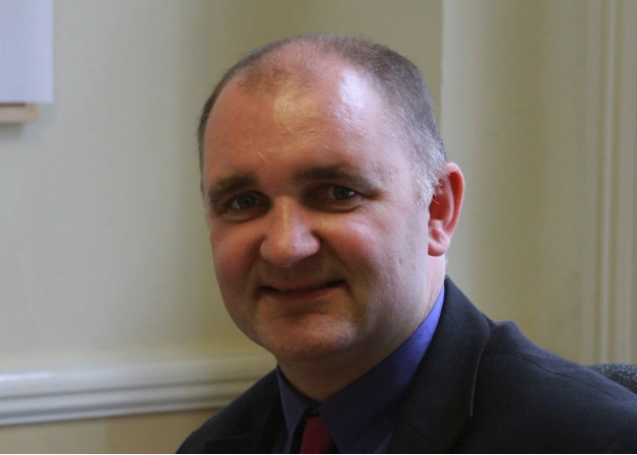Cemetery closures spark row over lockdown rules
Calls for ‘flexibility’ as Islington’s bereaved families are unable to visit graves during coronavirus crisis
Friday, 17th April 2020 — By Bronwen Weatherby

Islington and St Pancras cemetery in East Finchley, which is used by families across the borough. Photo: Mark Hillary
BEREAVED families say they have been left saddened by a decision to close Islington cemeteries during the coronavirus lockdown.
Council chiefs said the move followed an increase in visitors using them for jogging, dog-walking and cycling, clashing with their use by mourners.
The Islington and St Pancras cemetery in East Finchley, used by families across the borough, has been shut to the public except for funerals, which only immediate families are allowed to attend. The same approach is being taken at Trent Park and the closures mean relatives cannot visit the graves of their relatives, which for some families is a weekly event.
Former Lib Dem councillor Greg Foxsmith said he wanted to see a more flexible approach.
He added: “I know of one grieving mother who has been badly affected by this decision.

Former Lib Dem councillor Greg Foxsmith
“She turned up one day to find the gates of the cemetery locked, and I am sure there are many more examples of those affected by this enactment. Obviously there must be restrictions on who can attend funeral services.
“But, while mindful of having to protect cemetery staff and prevent the spread of the virus, there must be a more proportionate way of doing that without impacting individuals who want to enter to visit the grave of a loved one.”
Local authorities across London have taken different decisions: Waltham Forest, Southwark and Greenwich have all closed cemeteries, but Westminster City Council has kept its site in East Finchley open.
“If people are allowed to take a walk in the park, then why not to the vast cemetery site, where they are actually less likely to come into contact with others, and can also visit the grave of loved ones, assisting with the grieving process,” said Mr Foxsmith. “It’s not as if people are having barbecues or sunbathing.”
The Health Protection (Coronavirus, Restrictions) 2020 legislation, brought in by the government to curb the spread of Covid-19, says that crematoriums must be closed to the public during the emergency period, with the exception of carrying out funeral services.

Councillor Rowena Champion
The new law does not state that cemeteries have to be closed. Decisions to close graveyards are being made by individual local authorities or owners. Highgate Cemetery in Camden, run by charity the Friends of Highgate Cemetery Trust, was closed on April 9 except for burial services.
Islington’s environment chief, Councillor Rowena Champion, said: “We know our cemeteries are extremely important places for those who have lost loved ones, and that the closures will be upsetting for family and friends who wish to visit.
“However, these are working cemeteries and we made this difficult decision in order to protect visitors and our own critical workforce during the current health emergency.
“We must be able to continue carrying out funeral and cremation services in an environment that is safe and appropriate for both mourners and our staff. Unfortunately, despite the Government’s calls for people to stay at home, we saw a significant increase in the number of cemetery visitors.”
She added: “As there is no grass space, adults and children were cycling, walking, jogging and exercising dogs in numbers on the same roads used by funeral and maintenance vehicles, increasing the risk to health and safety for all.
“A minority of visitors also showed little respect for the fact these are cemeteries, creating an environment that was not supportive to mourners. Social-distancing measures – there for the safety of our workforce and those attending funerals – also became impossible to regulate.”
Cllr Champion said the council “will reopen our cemeteries to the public as soon as we can” but added: “I’m sure people will understand that for now we have to prioritise our ability to safely carry out funerals, and provide appropriate services to mourners.”